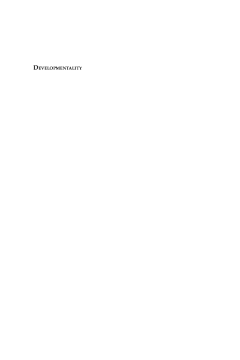
Additional Information
Book Details
Abstract
Drawing on ethnographic fieldwork within the World Bank and a Ugandan ministry, this book critically examines how the new aid architecture recasts aid relations as a partnership. While intended to alter an asymmetrical relationship by fostering greater recipient participation and ownership, this book demonstrates how donors still seek to retain control through other indirect and informal means. The concept of developmentality shows how the World Bank’s ability to steer a client’s behavior is disguised by the underlying ideas of partnership, ownership, and participation, which come with other instruments through which the Bank manipulates the aid recipient into aligning with its own policies and practices.
Jon Harald Sande Lie is a Senior Research Fellow at the Norwegian Institute of International Affairs (NUPI). He is co-editor of Forum for Development Studies, and has published in the journals Social Analysis, Millennium, and African Security. He is also the co-editor of Security and Development (Berghahn Books 2010).
“This is an incredibly important contribution to our understanding of World Bank operations, thinking, and practice. The author’s account of his time at the Bank and in Uganda makes the book at times compelling, or in more conventional parlance, a ‘page-turner!’” · Clive Gabay, Queen Mary University of London
“A unique study of the way the World Bank deals with its clients. Set in Uganda as the PRS system begins to dismantle, this is a complex account of the subtle contestations which comprise development in practice.” · Maia Green, The University of Manchester
“This is an original, interesting, timely book...the author has been able to get inside deliberations between the World Bank and one of its clients. [The book] demonstrates how the Bank’s modus operandi essentially dictates how states work around it, where the Bank’s operations drive development. This book is unique in putting the puzzle together in a fresh way.” · Susan Park, University of Sydney
